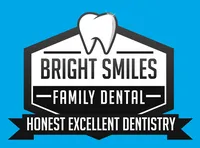Newsletter
Cancer and the Role of Oral Health
Hearing the world cancer is life-altering. Whether you or someone you are close with has been diagnosed, it is important to be prepared for the upcoming health changes. While there are commonly known side effects of cancer treatment, there are lesser known ones that are just as important, like oral changes.
How Chemotherapy Changes Your Oral Health
Many of the changes that chemotherapy brings about to the mouth involve your teeth, gums, tongue and saliva glands. A few of the changes include:
- Dry mouth
- A burning, peeling, or swollen tongue
- Change in taste
- Pain
- Increased risk of infection
These side effects can greatly affect your life, as your mouth is one of your most vital body parts. It may become difficult to chew and swallow, so there are obstacles getting in good nutrients. It can also become difficult to speak. In addition, since chemotherapy weakens the immune system, the risk of infection becomes more likely. The mouth is home to a lot of bacteria and can easily be injured. With a weakened immune system, an infection can turn dangerous. When these mouth problems become severe, sometimes cancer treatment needs to be halted or slowed down.
How Can Your Dentist Help?
There are important steps that a cancer patient needs to make a priority in order to maintain a healthy mouth and lessen the risk of serious complications. The first step is to see the dentist as soon as possible. Before chemotherapy begins, your mouth should be in tip-top shape. Then, in order to keep a healthy mouth, it is recommended to visit the dentist once per month before chemotherapy sessions. Your dentist will perform examinations and recommend any treatment needed to ultimately prevent infection.
What Can You Do?
On your own, you will need to make your home oral care routine a priority in your day. You will need to continuously work to prevent the side-effects of chemotherapy and combat the ones that do arise.
- To begin, keep yourself hydrated. This will prevent dry mouth which bacteria thrive in. Drink a ton of water and keep your mouth moist. You may need to chew sugarless gum or suck on ice chips to do this. There are also saliva substitutes out there for when chemotherapy has affected your saliva glands.
- Next, you need to keep a clean mouth. Brush your teeth three times per day; brush after each meal. Make sure you are also cleaning your tongue, the roof of your mouth, and your inner cheeks. Then, be sure you floss once per day.
- Be on the lookout for sores. Examine your mouth every day for unusual spots. Notify your doctor as soon as possible if you notice a sore or another unusual change.
- Lastly, be safe. Choose foods and drinks that do not have the capability to harm your mouth. This may include avoiding sharp foods like chips or checking on the temperature of your food to make sure it is not too hot. In addition, keep other objects out of our mouth like pen caps, toothpicks, etc.
Cancer can be a scary word, but with a healthy mouth and safe practices, your chances of survival will increase. In addition, you can save yourself added hardships.
This newsletter/website is not intended to replace the services of a doctor. It does not constitute a doctor-patient relationship. Information in this newsletter/website is for informational purposes only & is not a substitute for professional advice. Please do not use the information contained herein for diagnosing or treating any condition.
